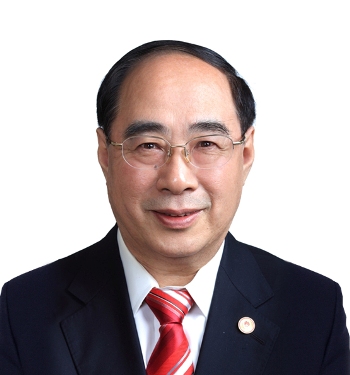Who we are…
The United Nations Department of Economic and Social Affairs (DESA) works closely with governments and stakeholders to help countries around the world meet their economic, social and environmental goals.
As the Secretariat entity responsible for the development pillar of the United Nations, our work addresses a range of cross-cutting issues that affect peoples’ lives and livelihoods. From poverty reduction to governance to finance to the environment, DESA’s work is about human progress for all, especially the most vulnerable. We are fundamentally concerned, not only with global prosperity today, but also for tomorrow.
DESA’s work is guided by the United Nations development agenda, which is rooted in the values of equality, solidarity, tolerance, respect for nature and mutual responsibility. Furthermore, with a focus on equitable participation by all people, the United Nations development agenda has unique, universal legitimacy.
Our vision for human progress goes beyond promoting global agreements and is fundamentally about action. Working closely with governments and other partners, DESA seeks concrete solutions. We are committed to addressing the world’s most pressing concerns and taking the necessary steps to help create a better world for all – a world that is inclusive, prosperous and sustainable.
What we do…
DESA’s work programme can be categorized into three areas: norm-setting, analysis, and capacity-building. Whether by supporting policy-making bodies, facilitating major UN conferences, projecting trends in demography, publishing top quality economic analysis, or helping countries develop capacity, DESA’s influence has reach far beyond the doors of the UN.
One of DESA’s primary contributions is providing policy research and analysis for member governments to use in their deliberations and decision-making. Throughout recent decades, DESA’s in-depth policy analysis has helped resolve many of the world’s most pressing socio-economic issues. By facilitating major global conferences and summits, as mandated by UN Member States, DESA assists countries as they find common ground and take decisive steps forward. In addition, DESA organises and supports consultations with a range of stakeholders, including the private sector and civil society. Upon request, DESA also advises and assists governments in implementing the policies and programmes developed at UN conferences back in their home countries.
Specifically, DESA is tasked with supporting deliberations in two major UN charter bodies: the UN General Assembly and UN Economic and Social Council (ECOSOC), as well as ECOSOC’s subsidiary bodies. In this regard, DESA’s main priorities are promoting progress toward and strengthening accountability in achieving UN development goals. Furthermore, DESA is responsible for ensuring civil society engagement with the UN by way of the ECOSOC body.
DESA is also the lead “author” Department of the UN Secretariat. Our research and analytical work covers a range of economic, social and environmental issues. We produce a host of flagship publications and major intergovernmental reports, which are essential to UN negotiations and global policy decisions. Each year, DESA’s many publications are distributed in print and electronic formats around the world. DESA is also known for its first-rate data, including population estimates and statistics, long considered global benchmarks of reliable information.
Reaching the UN Millennium Development Goals (MDGs) has been an integral focus of DESA’s work and informs many aspects of the Department’s programming. As the 2015 deadline for achieving the Goals approaches, DESA is now working with a range of partners to build on the MDGs and help create a vision for the future that puts people and planet first. Part of this effort includes following-up on the United Nations Conference on Sustainable Development (Rio+20) and elaborating a set of Sustainable Development Goals (SDGs). These important initiatives are converging and will guide us to the future we want – one that is sustainable, prosperous and inclusive of all.
Who leads the way…
 On 1 August 2012, Mr. Wu Hongbo became Under-Secretary-General of DESA, as appointed by UN Secretary General Ban Ki Moon.
On 1 August 2012, Mr. Wu Hongbo became Under-Secretary-General of DESA, as appointed by UN Secretary General Ban Ki Moon.
In this capacity, Mr. Wu is responsible for a number of tasks, including:
- managing the Department and its divisions;
- advising the Secretary-General on issues related to social, economic and sustainable development;
- establishing key partnerships with governments, UN agencies and civil society organizations;
- convening the Executive Committee on Economic and Social Affairs, which is the UN’s network for joint initiatives on development;
- and overseeing the Development Account of the United Nations regular budget, which funds programmes implemented by ten different entities in the UN Secretariat.
Mr. Wu was also the Secretary-General for the Third International Conference on Small Island Developing States (SIDS), which took place in Samoa in 2014.
A career diplomat, Mr. Wu was previously the Ambassador of the People’s Republic of China to the Federal Republic of Germany.
To hear Mr. Wu explain how DESA effectively delivers on its mandate, watch the video below.
In directing and managing DESA, the Under-Secretary-General is supported by the Assistant Secretary-General for Economic Development and the Assistant Secretary-General for Policy Coordination and Inter-Agency Affairs.
Meet Thomas Gass,
Assistant Secretary-General for Policy Coordination and Inter-Agency Affairs.
Meet Lenni Montiel,
Assistant Secretary-General for Economic Development.
